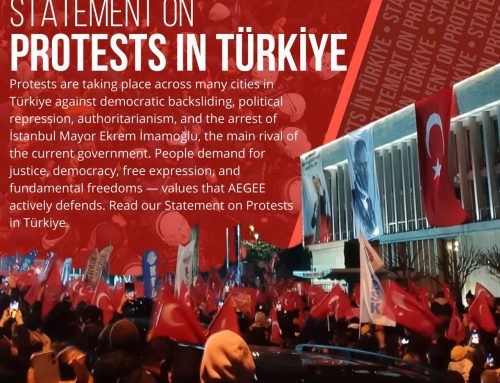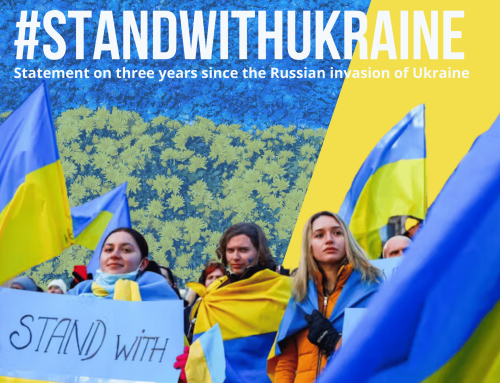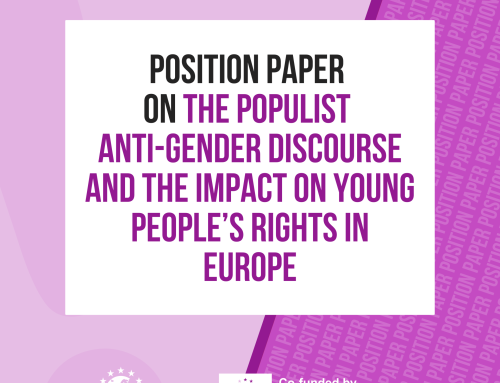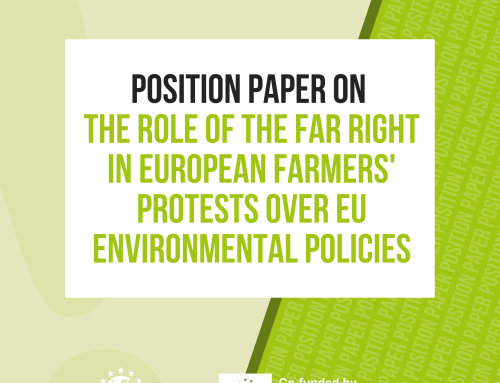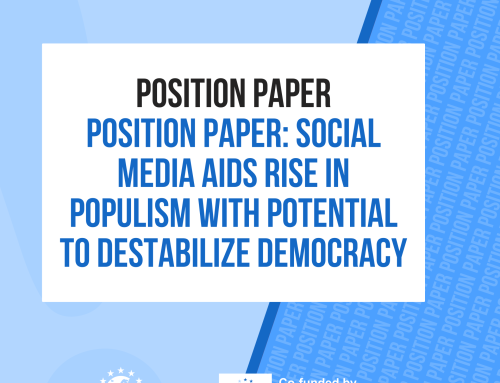17th November, 2009. In many German cities simultaneously, colourful alliances of university students, high school students, apprentices, interested citizens and even some disguised professors march against recent developments in education policy.
What is planned as a peaceful protest to raise public and governmental awareness soon develops a dynamic of its own. On the same afternoon, in many places, students take the auditories and other main university facilities and refuse to leave. Within a few days, 62 universities in Germany are occupied, partly or entirely, by ten thousands of students condemning the “neoliberal” tendencies in education policies.
17th November, 2011. Coincidence? Again, a nation-wide alliance of the most different groups is calling for a global “Bildungsstreik”, a so-called educational strike, collectively staying away from class to make a clear statement against current education policies. The date is symbolic – the organisers certainly hope for an impact similar to the 2009 protests that caught major public attention and arguably led to the abolishment of the newly established tuition fees in some of the German Bundesländer (federal states). But what is the point this time, what is the context – and what are the prospects?
In fact, the agenda has not substantially changed since 2009:
– There are still tuition fees up and running that are considered to be discriminative, favouring the rich, and ignoring the (postulated) principle of free education.
– In certain Bundesländer (education is a regional competence in Germany), university management has been taken over by something called a “university council” that is composed of a few professors and representatives of external sponsors, replacing the traditional senate as the supreme authority (which includes, for instance, the competence to appoint/discharge the university rector) and being accountable only to the ministry, which deprives students of any influence whatsoever and is seen by many as undermining the democratic principles of university administration.
– The Bologna Process, which has caused the German academic world a major trauma by replacing the traditional Diploma/Magister curriculum with Bachelor/Master courses, has brought not only formal changes, but the occasion of the reform was used to implement a rigid system of “graduate production”, streamlining the substance of university education to serve the bare necessities of the labour market, putting great pressure on students to finish their studies in time, and in most cases leaving no space whatsoever for extracurricular activities.
There are more points, which can be found on the Bildungsstreik page (in German).
But what must be the question here is not only the actual validity of the points mentioned, which are endlessly debatable (and for the debate of which the Bildungsstreik has provided an excellent platform in the past). No, we must also ask ourselves what the dimensions are of this remarkably persistent resistance, and what conclusions we draw from it. Because in 2009, it was in Vienna where the fire broke out in September, two months before the protest became a true mass phenomenon, and since then we have seen large numbers of students protesting in England, Croatia, the Netherlands, Spain and many other European locations. All movements, triggered separately by national incentives, have most of their ideology and political agenda in common, which is, drastically reduced: free education for everybody, the independence of higher education and research from commercial (and military) interests, the administration of higher education according to democratic principles, and, most importantly, an educational design that brings forth not only able professionals, but also mature citizens, and not the mindless drones, the epsilon class semi-morons that populate Aldous Huxley’s Brave New World.
Do we need something like a “Structured Dialogue” for education in Europe? At least, direct student participation in educational decision-making (on all levels) seems desirable if we want to avoid the reliable interruption of lectures every autumn.
by Thomas Leszke, former Projects Director of AEGEE-Europe (2010-2011)

